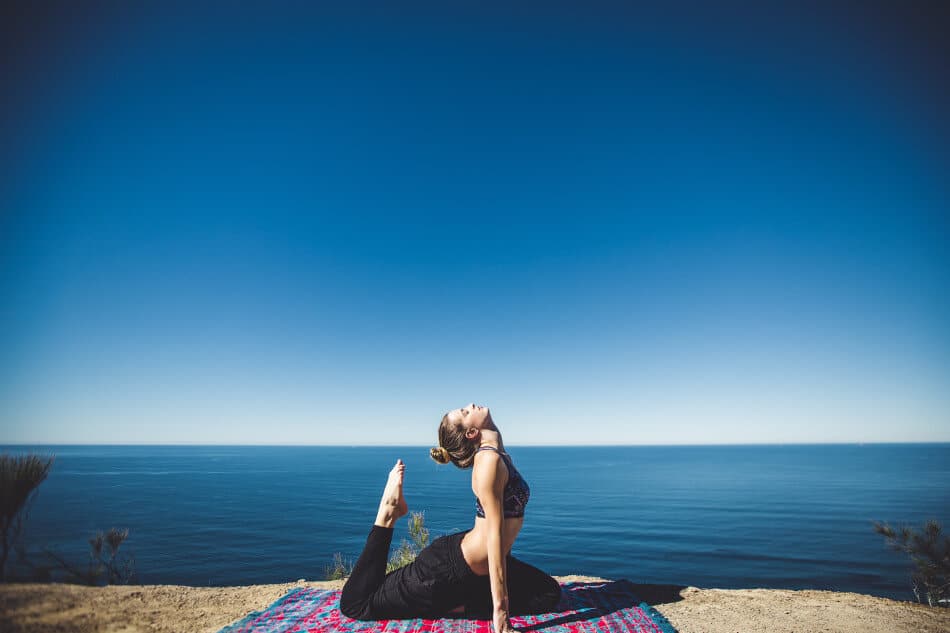People who report feeling lonely are more than twice as likely to also have a substance abuse disorder.
Loneliness is an epidemic, and it’s often a major cause of addiction. It’s also a big part of relapse. During treatment, we’re taught to rely on our friends and families for support, but given the global pandemic, many of us are without this support network and are instead left relying on ourselves to maintain healthy habits.
Understandably, this is no easy feat. And without a robust self-care routine in place, it’s near impossible. However, by putting yourself first and taking control of your routine, you can stave off the urges to reuse and continue with confidence on your journey to recovery. All it takes is a little self-love.
Here are five self-care activities to try after rehab (and during lockdown).
Exercise

Many recovering addicts turn to exercise for a similar release to substances. In all forms, exercise produces a release of similar hormones to drugs, only without the dangerous and debilitating side effects.
The benefits of being outdoors are also well documententated.
There’s a reason it’s called the ‘runner’s high’. If you’re stuck indoors and feeling a little restless, then, start developing an exercise routine.
But don’t just take our word for it. A small study investigated an exercise program offered to 38 men and women who misused a variety of substances. Participants agreed to take part in group exercise three times a week for two to six months. Twenty people completed the intervention. When reassessed a year later, five reported abstinence and 10 reported that they had decreased their substance use.
Exercise is the perfect way to distract yourself from cravings. It’s also an excellent way to add structure to your day.
Eat well

Food directly affects our mood, and our mood is everything when it comes to controlling our urges.
A poor diet consequently reduces our ability to control these urges. It clouds our mind and leads to weaker self-control.
Ultimately, eating good foods makes you feel good about yourself. When you feel good, you’re less likely to use substances.
Know when to switch off

Working hard on yourself is great. But much like substances, wellness can become addictive, and this poses a problem.
When we set standards that are exceedingly high, it becomes easier to fail. And with failure comes lower self-esteem and a downward spiral back into addiction.
While it’s important to work hard on yourself, it’s also vital to know when to turn that side of your brain off, give yourself a break and relax.
Without downtime, you’ll burnout on working on yourself, and that’s cause for disaster.
Reduce stress

Reducing stress is easier said than done. But stress is often one of the major factors in addiction, and many people turn to substances to ‘escape’ it.
To do this, it requires a little mindfulness. Know when you’re feeling overwhelmed or overworked and know the tactics to deploy to mitigate this feeling. Sleep, good food, meditation and exercise, for example, will help you find that reset button.
Talk to people

Sure, COVID-19 has forced us to spend our days indoors and, in some cases, alone. But that doesn’t mean that you have no support system. Reach out to friends over the internet, grab coffee with family members, or pick up the phone and call your therapist.
Whatever it is, talking about our concerns and vulnerabilities is the best chance we have to overcome addiction and remain sober. Remember: no person is an island.
As a last resort, return to rehab

Of course, if you’re overwhelmed by your urges and end up relapsing, a return to rehab may be in order.
Unfortunately for many, a return to rehab causes intense feelings of guilt, failure and shame.
We’re here to tell you that it shouldn’t. Life can be tricky sometimes and asking for more help along your journey to recovery should be embraced, not ignored.
The best part is: If you do return to rehab, you’ll know exactly what to expect. In fact, you’re already halfway down the road back to recovery.
To find out how White River Manor can help, contact an expert today.

